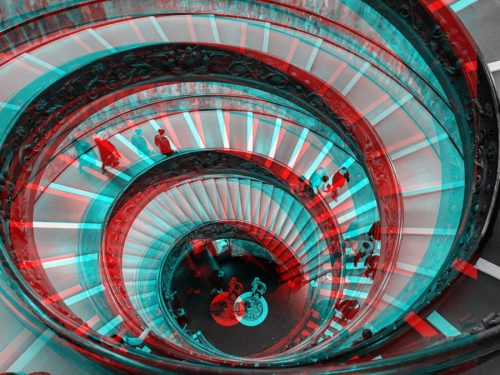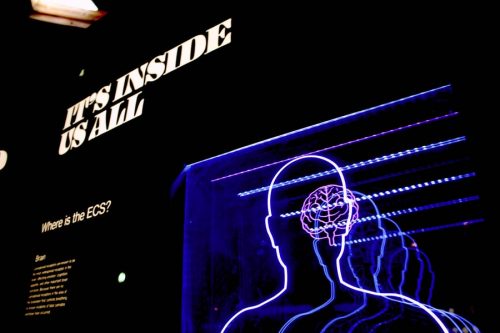As we age, people go through growth and development, including your sexual practices. The frequency of changing IUD can lead to depression. The changes in emotions can be due to hormonal imbalance.
Mood swings triggered by your birth control can increase the intensity of your depressive symptoms. There are limited studies about how IUD influences affective behavior. However, developmental psychology can offer you biological and psychological explanations.

You mature in various aspects–mentally, emotionally, physically, cognitively, and psychologically. Some might even achieve a spiritual heightening. Throughout your lifespan, developmental psychology explains the change and consistency of your feelings, cognition, and behavioral change.
For instance, some of these changes might predict how you will socially interact with other people. It can also influence how you manage your own emotions and thoughts. Developmental psychology can also look into your traumatic experiences and achievement through the course of your maturation.
In the 1980s, developmental psychologists had three goals to evaluate your growth. Firstly, to describe the development which focuses on the typical patterns of your behavior. Secondly, explain the variations of these patterns. Finally, optimize a strategy to correct non-normative development.
Historically, developmental psychology focuses on childhood development theories. One example is the psychosexual theory of Sigmund Freud. It is one of those researches that show the characterization of sexual stages from puberty to adulthood.
Meanwhile, Erik Erikson’s eight life stages in the 1900s emphasize an individual’s psychosocial development up to the generational level.
The big debate on whether nature or nurture defines human behavior is one of developmental psychology’s cores. Indeed, the biological influences and the external factors affecting how you socialize and interact. In fact, it can also be seen as a dynamic part of behavioral change.
Another focus of developmental psychology delves into the past and future experiences of an individual. In this case, psychologists would suggest how early childhood experiences can have an enormous impact on future behavioral tendencies, regardless of how traumatic or pleasing they were.
Likewise, motivation and the drive to succeed can also influence the individual’s succeeding actions.
If you are interested in how developmental psychology can predict your future behavior and how it can help you, we’ve listed a series of frequently asked questions below.
What are the three major issues in developmental psychology?
Major issues in the field of developmental psychology include:
- Nature and nurture: how does genetic inheritance, or our nature, relate to our life experiences, or our nurture, in terms of its influence on our development?
- Stability and change: which personalities exist throughout our lifetime?
- Continuity and stages: what areas of development are slow and continuous, like taking the escalator
What is an example of developmental psychology?
Developmental psychologists occasionally use several theories to think about various areas of human development. For example, a psychologist evaluating intellectual development in a child may think of Piaget’s cognitive development theory, which summarized the primary stages kids go through while they are learning.
What are the five major developmental theories?
The five major theories of development are as follows:
- Bowlby’s Attachment theory
- Erikson’s Psychosocial developmental theory
- Piaget’s Cognitive developmental theory
- Freud’s Psychosexual Developmental theory
- Bandura’s Social Learning theory

Source: unsplash.com
Who is the most famous developmental psychologist?
The most popular developmental psychologist would have to be Jean Piaget. His cognitive development theory had a significant influence on psychology, particularly the concept of intellectual growth.
What are the seven stages of development?
A human being moves through seven stages in his whole life span. Infancy is the first stage, followed by early childhood, middle childhood, and adolescence. Finally, adulthood is divided into three, which complete the seven stages – early adulthood, middle adulthood, and old age.
What are the four theories of growth and development?
The five theories include psychosexual, cognitive, psychosocial, spiritual, and moral. These all evolve together in the process of learning and maturation. Learning more about growth and development is vital to the medical practitioner to keep track of a child’s developmental behavior. This also assists in planning how to take care of the baby better.
What are the eight stages of human development?
The eight stages of human development are as follows:
- Mistrust vs. Trust
- Initiative vs. Guilt
- Autonomy vs. Doubt and Shame
- Industry vs. Inferiority
- Confusion vs. Identity
- Isolation vs. Intimacy
- Integrity vs. Despair
- Generativity vs. Stagnation
What are the five characteristics of human development?
The significant characteristics of human development are as follows:
- Development is a constant process.
- Various areas of growth develop at varied rates.
- The development follows a structure.
- Development is an outcome of the interaction of an organism to its environment.
- The development of an organism progresses from general to specific responses.
What are the six life stages?
The entire life of a human being is composed of six stages. They are the following:
- Infancy 0 to 2 years old
- Early childhood 3 to 8 years old
- Adolescence 9 to 18 years old
- Early adulthood 19 to 45 years old
- Middle adulthood 46 to 65 years old
- Late adulthood – 65 years old and above
What are the 12 stages of life?
Here are the 12 stages of the human life cycle:
- Pre-birth: the child has not been born yet
- Birth: the child is born
- Infancy: the infant is so energetic as if having an unlimited liveliness
- Early childhood: this is the playfulness stage
- Middle childhood: the child initially develops his or her imagination
- Late childhood: at this time, the child has acquired a variety of technical and social skills
- Adolescence: changes in the child’s emotional, cultural, spiritual, and sexual points of view
- Early adulthood: the adult goes out into the world and practices the principles of enterprise
- Midlife: individuals in their midlife typically have a break from their usual responsibilities and reflects on the purpose of their lives
- Mature adulthood: here the individual is perhaps raising a family of his own and has established himself in his work and social life
- Late adulthood: individuals with long lives have gathered a treasure of experiences that help them avoid past mistakes while taking advantage of the life lessons.
- Death and dying: the dying and the dead will have taught us the value of life.
What is the age of early adulthood?
Early adulthood begins at 20 years old and ends at about 40.
Conclusion
The truth about IUDs and depression is quite blurry. Using birth control and your body’s frequent changes can influence your emotions, thoughts, and feelings. Some of these can trigger depressive symptoms.
However, it is always advisable to look into both biological and psychological causes. For instance, it might be hormonal or purely caused by unpleasant experiences.

You might be excessively thinking about your past experiences as a child and how they contributed to your present actions. You might also be obsessing on your personality changes over the past years. Or you might be wondering if your identity would still exist throughout your lifetime.
You may also want to pursue spiritual and moral growth in addition to your psychological development. These experiences will explore your social and biological influences. At the same time, you will also discover how cultural development has shaped your behavioral patterns. And which of these external and internal factors influences you the most.
Studying psychological development can help you manage symptoms of neuroticism. Struggling or being stuck in a developmental stage can have a long-lasting negative impact on your psychological growth.
For instance, you can develop neurotic behavioral patterns of behavior, which can leave you socially impaired. However, multiple approaches from theories of developmental psychology can help you.
In therapy sessions, a developmental psychologist can address life stages which you are unable to complete. Some of these problems would include the unhealthy formation of relationships and difficulties in creating identity. They can also help address problems with isolation and the inability to face challenges during old age.
By better understanding our development stages, you can decide whether you need professional help to fulfill your full potential. It can also help form healthier choices in your lifestyle. Moreover, it can improve your emotions and relationships as well.
When deciding on better psychological treatment, it is essential to consult a mental health professional. Your psychiatrist or psychologist can provide you with a suitable and customized approach to your mental health condition.
Essentially, therapies using developmental psychology can help you address problems in your growth and maturity. The first step is to seek advice from an expert. You are encouraged to consult your doctor to know if this type of approach can help you.
